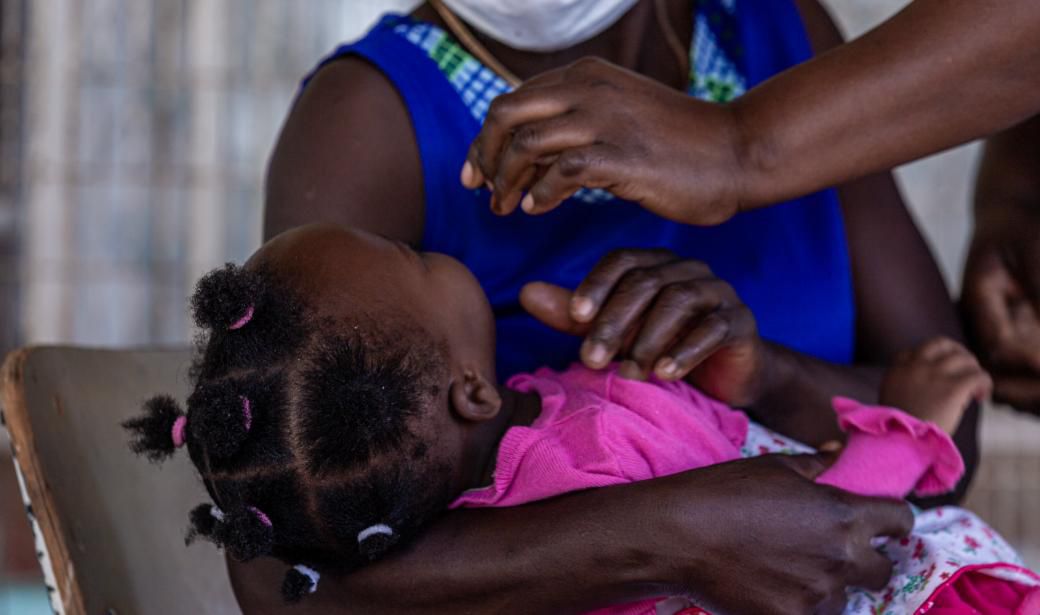
Bosomtwe District Health Directorate in the Ashanti Region has spearheaded the vaccination of 7,000 dogs for free, in addition to public education on rabies prevention.
The project was supported by UK -based organisation, Mission Rabies, in collaboration with the Ashanti regional veterinary office, the local assembly and Ghana Education Service.
Bosomtwe District is among districts taking the lead in the fight against rabies in the country.
The district has recorded one death from the disease since 2016 and reports of dog bites has increased from 71 in 2016 to 99 in 2017 and 121 in 2018.
Public Health District Director of Health Service for Bosomtwe District, Dr Moses Djimatey Barima said “September is when we launched the campaign in the district, so from October, November and December, the number of dog bites that was recorded within just a quarter, was more than the first three quarters.”
This means that in the absence of the campaign, people would have been bitten by dogs and still not report.
Collaboration with Mission Rabies
Dr Moses Djimatey Barima’s leadership and effort in the district has attracted the assistance from the UK-based charity group that assists animals, Mission Rabies.
Mission Rabies has played a crucial role in the campaign to rid the district of rabies.
Veterinary Surgeon with Mission Rabies, Jordana Burden Bailey, says they saw the effort of the passionate public health professional and decided to support.
The Mission brought 7,000 vaccination kits and drugs to undertake the exercise that lasted for two weeks. Seven teams worked in seven geographical areas each day but moved from one community to the other for two weeks.
The team worked every day of the two weeks with the exception of the weekend and covered as much of communities in the Bosomtwe District.
“Many people were happy to see us. The hope is that by vaccinating at least 70 per cent of dogs within the district, we can then eliminate rabies from here,” said Jordana.
According to her, rabies is one hundred per cent preventable through vaccination so no one should die from the disease. The active vaccination component of the project lasted for two weeks which ended on Thursday, February 20, 2019.
First-time vaccination
One of the dog owners, Kofi Amoah, said he had his dog about a year and a half ago but has never vaccinated it.
He was grateful that his dog was getting the vaccination for the first time.
“They were seven puppies but all of them had died. All of the rest died of sickness so we fear this one could die in the same fashion that is why we have brought it here to be vaccinated,” Kofi Amoah explained.
Industry watchers advise that all dogs should be vaccinated for rabies at least 14 weeks after birth and again at one year.
WHO’s target
Meanwhile, Dr Moses Djimatey Barima is positive the intensified campaign will help achieve the World Health Organisation target of ‘No Human Should Die of Rabies by 2030’.
According to him, 99 per cent of human deaths from rabies are due to engagement with dogs either through bites or scratches.
“If we get all our dogs vaccinated every year, then we will not get rabies so you could be bitten by a dog and because it has been vaccinated, you are free from rabies,” he said.
Education is not restricted to communities alone. The health directorate has collaborated with the Ghana Education Service to allow for the education to be extended to the basic schools in the district.
Challenges and support systems
The office of the district health directorate has no official vehicle so they had to fall on vehicles from the local assembly.
District Chief Executive, Joseph Kwasi Asuming, provided two vehicles to support the vaccination exercise particularly for those that went to the hard-to-reach areas in the district.
“In this scientific age, nobody should die of rabies. There should be Zero tolerance for rabies and that the exercise is extended to other parts of the country,” he said.
The Chief of Deduako, Nana Adjei Panin II, who was at the launch of the programme applauded the exercise and was excited the district had become a hot spot in the prevention of rabies in the country.
What to do when bitten by a dog
When you are bitten by a dog, wash the place continuously with running water for 15 minutes with soap, then report to the bite to a veterinary officer and then to a clinic. When you do this, the veterinary officer together with the health workers will know what to do for you.
Sometimes you are given a rabies vaccine when you are given then you are safe.
If you do not report, the virus will travel to the brain and when they get to the brain; within six to eight weeks or sometimes it can last for a year.
And immediately you start showing signs and symptoms of rabies, it is a journey of no return, not anywhere in the world would you be saved. You are most likely to die.
Read Full Story












![Dormaahene hails Mahama, vows to carry him at his back if cedi hits GH?8 to $1 [Video]](https://sportal365images.com/process/smp-images-production/pulse.com.gh/01062025/e9150a95-eb04-4066-bf2d-fef977524ffe.png)







Facebook
Twitter
Pinterest
Instagram
Google+
YouTube
LinkedIn
RSS